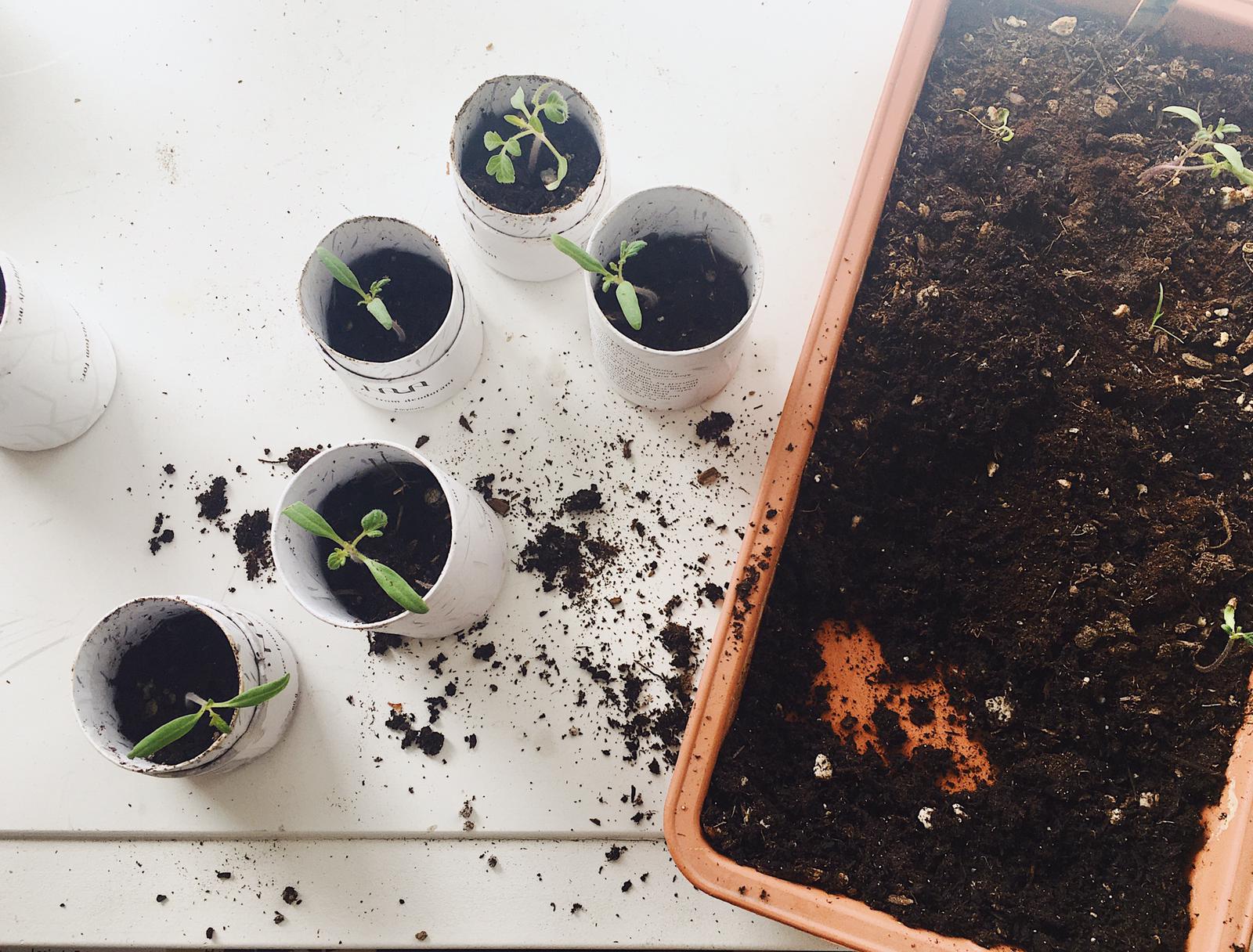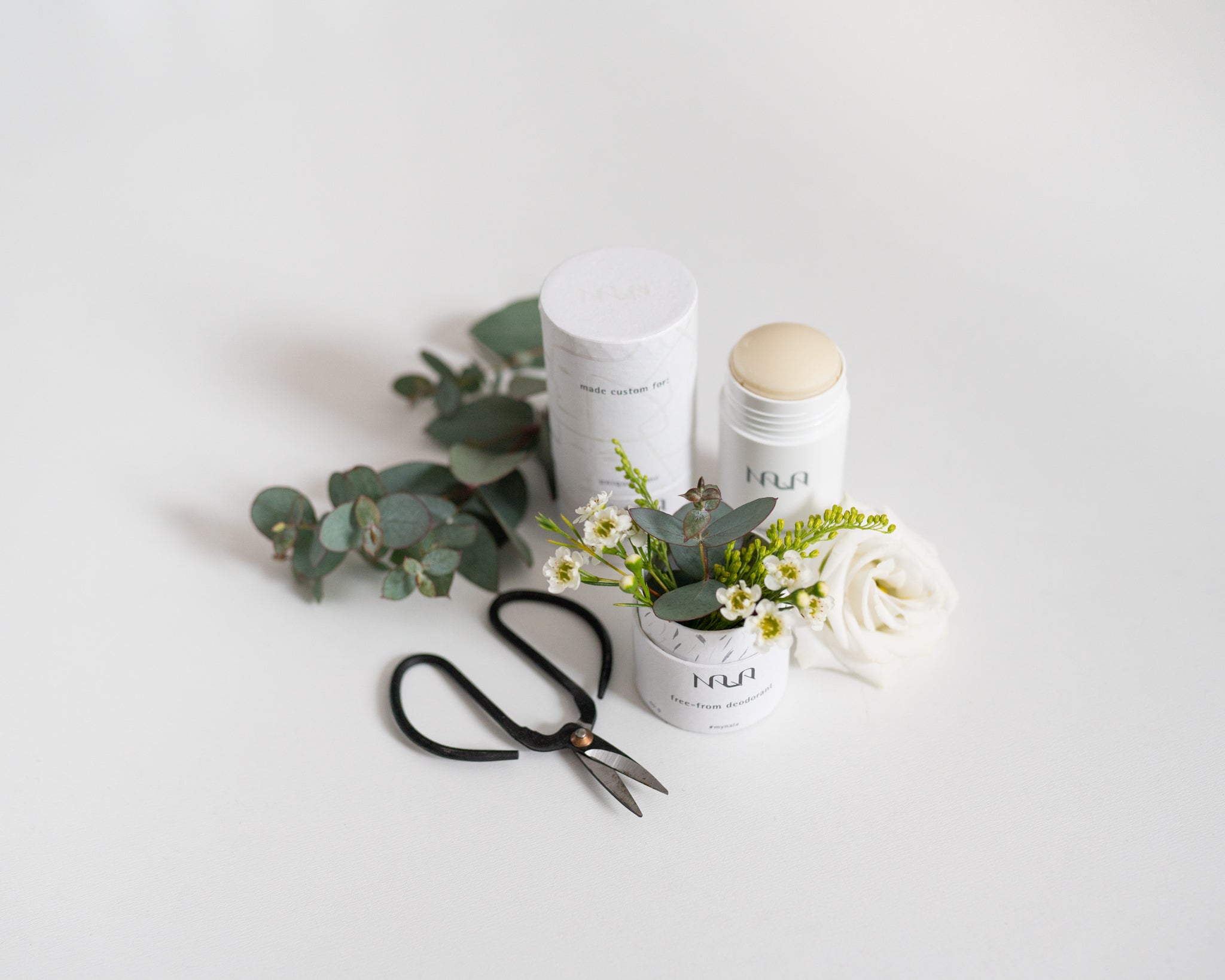We sweat. We sweat when we know we have a big meeting coming up. We sweat when we’re running late to pick up the kids, or when we stub our toe on the bed frame. Again.
We sweat when we walk, run 5km on the treadmill, or when we’re just working to stay cool in our South facing apartment in the middle of July. We sweat a lot in our daily lives, but the elements that trigger the body’s response to sweat are also what make our sweat smell differently at times.
The difference
The human body has over 2-3 million eccrine sweat glands distributed over almost the entire body surface. The main function of the eccrine sweat gland is the control of body temperature (1). This is an important factor in heat-loss, either when the environment is hot or when you’re doing something physical that raises your temperature (2). This form of sweating is incredibly sensitive and precise, and it will increase or decrease in response to subtle changes in the environmental temperature (3). It’s much less smelly, if at all, compared to psychological sweat.
Psychological sweating, also known as stress sweat, gets activated from things like anxiety and pain and doesn’t begin to occur in the body until teenage years. It’s due to apoeccrine sweat glands, which develop from eccrine sweat glands during puberty (1). This form of sweating can take place over the whole body, but is most present in your palms, face, and you guessed it, armpits. The increased sweat output from psychological factors, like anxiety and stress causes sweat that smells, as apoeccrine glands release a milky fluid when activated, which is odourless until combined with the bacteria on your skin (1).
What to do about psychological sweat
We can’t really change our natural bodily response to anxiety and stress, but we can tune into it to decrease the amount that we might trigger our apoeccrine sweat glands.
-
Being mindful about what causes anxiety and stress for you can play a big role in reducing your psychological sweat. The best way to stay present and tune into your bodily responses is to journal, or even just quickly note down what’s triggering you each time your heart rate amplifies and your sweating increases. For example:
- "Got a last minute meeting invite for today - I stressed about getting my work done before it."
- "I slept through my alarm and was late getting to my appointment. My stomach was in knots the whole drive there."
- "I had an exam today, enough said."
- Once you have a better idea of what causes anxiety and stress in your everyday, you can be better prepared to work with it. It’s not about avoiding these situations, but about being better equipped to deal with them. Meditation and deep breathing are specifically known to reduce moments of stress and anxiety, and regular practice can generate inner peace, satisfaction, and creativity (5).
- Arming yourself with a little pre-planning also helps. When you know you’re going to have a stressful day, maybe you have a presentation or a first date, apply a stronger deodorant, like our Sandalwood and Bergamot. There is nothing that says you need one deodorant to manage all your needs. Our bodies have different needs every day, and your deodorants should serve those varying needs. You may not need an extra strength deodorant every day, but helping your body stay fresh smelling throughout that nerve wracking first date is where it comes in handy. And if it’s an easy Sunday of reading your favourite book on the patio or seeing a friend for brunch, then our happy medium strength Lemon Myrtle and Geranium free-from deodorant, or even our gentlest Detox Peppermint and Activated Charcoal is ready for the day.
Deodorants featuring copaiba such as the personalized Woodsy deodorant help combat psychological sweat with stress-reducing properties and by serving as a powerful reminder in your routine to take a deep breath and slow down.
Empower yourself with these techniques, and don’t let your sweat control you.
References:
- Saga, Kenji. “Histochemical and Immunohistochemical Markers for Human Eccrine and Apocrine Sweat Glands: An Aid for Histopathologic Differentiation of Sweat Gland Tumors.” Journal of Investigative Dermatology Symposium Proceedings, Elsevier, 16 Dec. 2015, https://www.sciencedirect.com/science/article/pii/S0022202X15528741.
- Kondo, Narihiko, et al. “Function of Human Eccrine Sweat Glands during Dynamic Exercise and Passive Heat Stress.” Journal of Applied Physiology, 1 May 2001, https://www.physiology.org/doi/full/10.1152/jappl.2001.90.5.1877.
- Robinson, Sid, and Aline H. Robinson. “Chemical Composition of Sweat.” Physiological Reviews, 1 Apr. 1954, https://www.physiology.org/doi/abs/10.1152/physrev.1954.34.2.202?journalCode=physrev.
- Harker, M. “Psychological Sweating: A Systematic Review Focused on Aetiology and Cutaneous Response.” Skin Pharmacology and Physiology, Karger Publishers, 20 Feb. 2013, https://www.karger.com/Article/Abstract/346930.
- Coppola, et al. “Natural Stress Relief Meditation as a Tool for Reducing Anxiety and Increasing Self-Actualization.” Latest TOC RSS, Scientific Journal Publishers, 1 Jan. 1970, https://www.ingentaconnect.com/content/sbp/sbp/2009/00000037/00000003/art00003.
Photo by Haley Lawrence
>

